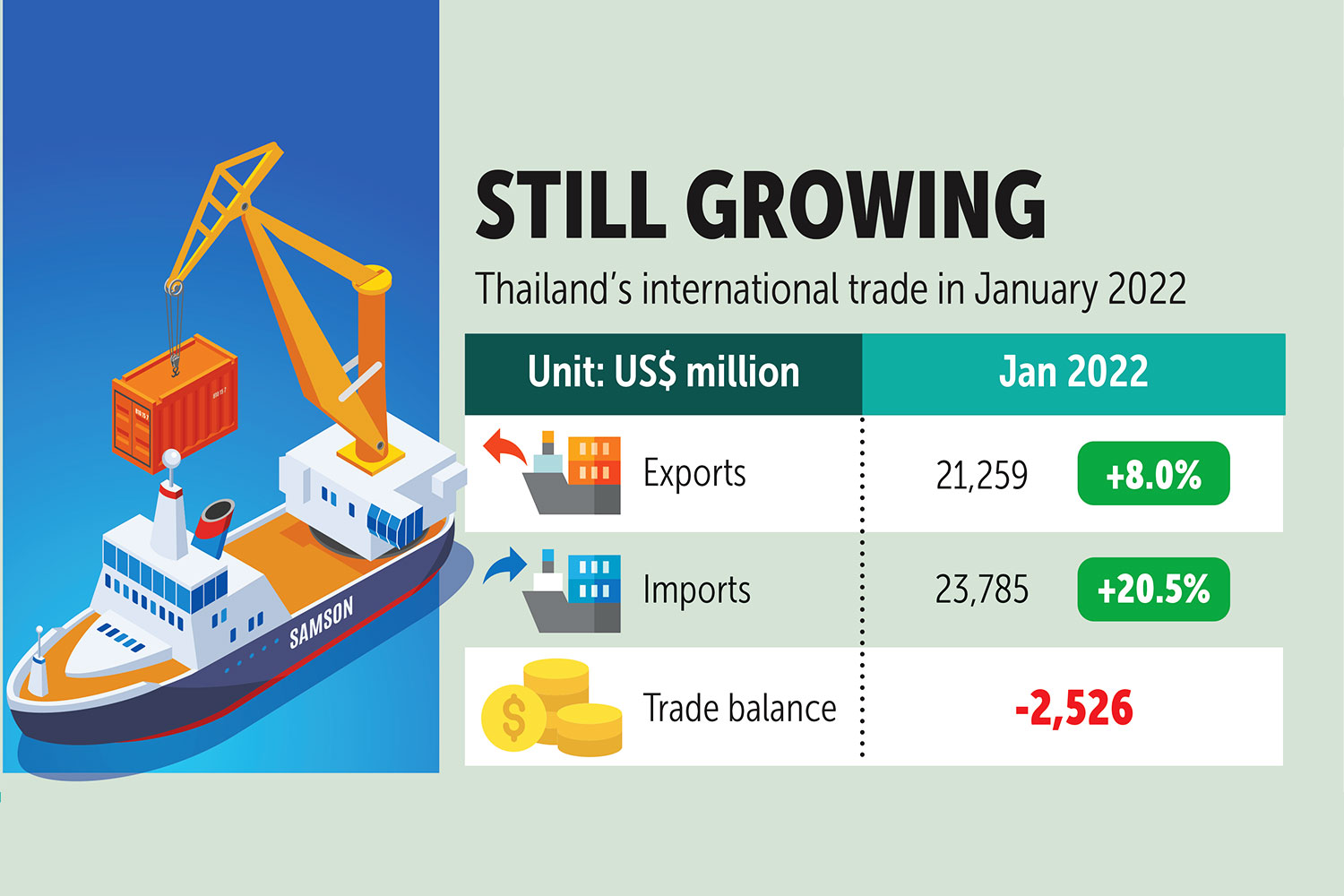
Thai exports are maintaining their growth momentum, expanding 8% year-on-year in January thanks to the global economic recovery, an easing of the container shortage and promotions by authorities.

The Commerce Ministry reported on Wednesday customs-cleared exports fetched US$21.3 billion, with imports rising by 20.5% to $23.7 billion, resulting in a trade deficit of $2.52 billion.
Commerce Minister Jurin Laksanawisit said the economy is on course to recover as indicated by a continuous rise of the global manufacturing purchasing managers' index (PMI), which stood above 50 for the 19th consecutive month.
The container shortage is also easing, especially at Laem Chabang Port, Bangkok Port and key ports in the US, while the private sector agreed to extend business hours on holidays and increase working hours during the night to raise the flow of container supply.
The ministry is maintaining its export growth target at 3-4% this year despite a host of risk factors such as rising oil prices from the escalating conflict between Russia and Ukraine.
In a related development, Mr Jurin said after chairing a joint meeting between the ministry's senior officials and the private sector the conflict in Ukraine has not had much impact yet on Thai trade.
The meeting included the Thai Chamber of Commerce and the Thai National Shippers' Council.
Thai exports to Russia and Ukraine are considered insignificant, he said, with export value to Russia only making up 0.38% of total exports last year or about $1.02 billion.
Thai exports to Ukraine totalled $135 million or 0.05% of Thailand's total exports.
A slight impact could be felt for shipments of tyres, processed foods, gems and cosmetics exported to Russia and Ukraine, said Mr Jurin.
In the longer term, the crisis might affect the cost of financial transactions and freight because of higher oil prices, he said.
Given the indirect impact of the crisis, Mr Jurin said Thailand may see higher energy prices or imported steel prices used as raw material to produce cans and construction materials.
He said imported grain for animal feed such as wheat and corn could become more expensive, as Russia and Ukraine are the world's largest producers and exporters of wheat.
Mr Jurin said the ministry already prepared measures to offset such impact by seeking substitute markets such as the Middle East, Africa and Latin America.
The ministry also plans to target markets for products Russia and Ukraine are unable to export, such as cassava as a substitute for corn from Ukraine as well as rubber products and processed food, he said.







